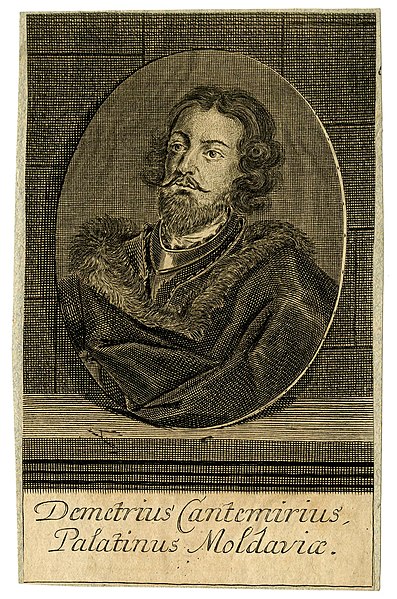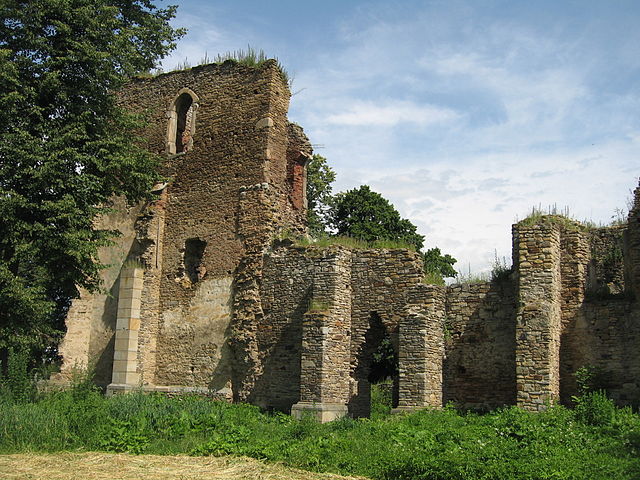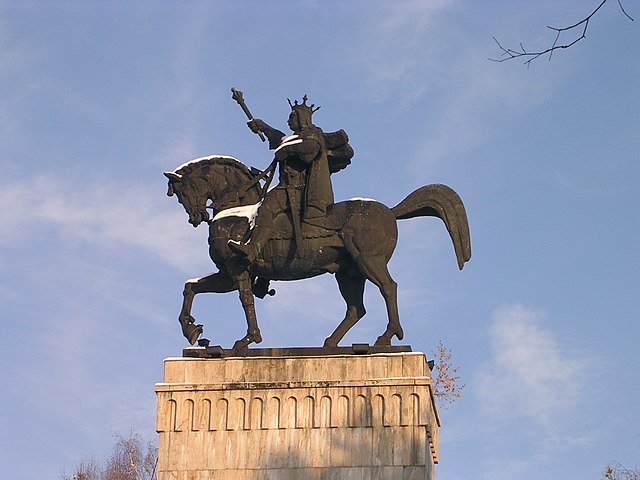Dimitrie or Demetrius Cantemir, also known by other spellings, was a Moldavian prince, statesman, and man of letters. He twice served as voivode of Moldavia. During his second term he allied his state with Russia in a war against Moldavia's Ottoman overlords; Russia's defeat forced Cantemir's family into exile and the replacement of the native voivodes by Greek phanariots. Cantemir was also a prolific writer, variously a philosopher, historian, composer, musicologist, linguist, ethnographer, and geographer. His son Antioch, Russia's ambassador to Great Britain and France and a friend of Montesquieu and Voltaire, would become known as "the father of Russian poetry".
Portrait of Dimitrie Cantemir from the first edition of Descriptio Moldaviae (1716)
Dimitrie Cantemir in Ottoman dress
Dimitrie Cantemir on the 100 Transnistrian ruble note
Portrait of Dimitrie Cantemir in 1710
Moldavia is a historical region and former principality in Central and Eastern Europe, corresponding to the territory between the Eastern Carpathians and the Dniester River. An initially independent and later autonomous state, it existed from the 14th century to 1859, when it united with Wallachia as the basis of the modern Romanian state; at various times, Moldavia included the regions of Bessarabia, all of Bukovina and Hertsa. The region of Pokuttya was also part of it for a period of time.
The hunt of Voivode Dragoș' for the bison (by Constantin Lecca)
Ruins of the Roman Catholic Cathedral established by Transylvanian Saxon colonists at Baia (German: Moldenmarkt), Suceava County, Romania
The Seat Fortress in Suceava, Romania
Equestrian statue of Moldavian Prince Stephen the Great in Suceava








